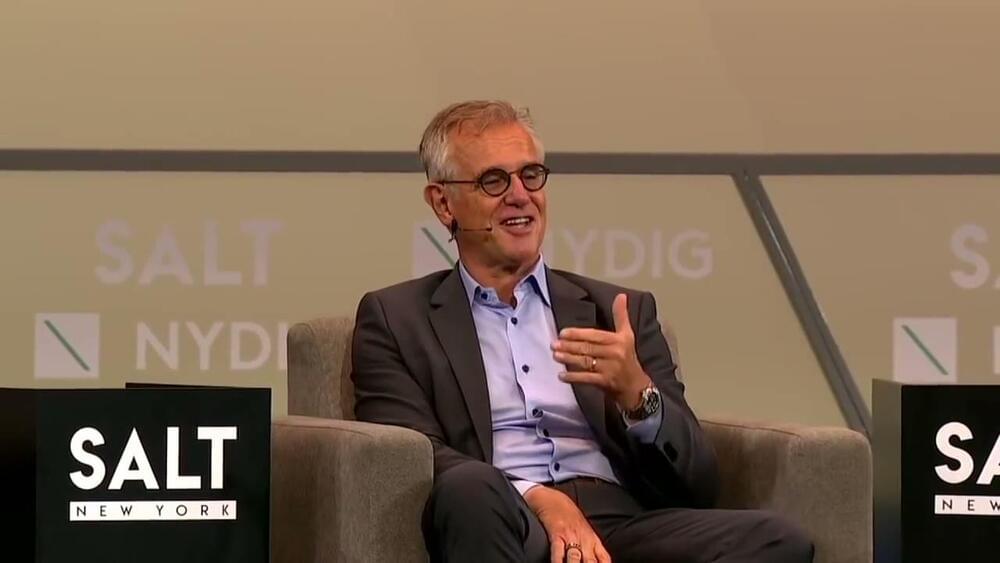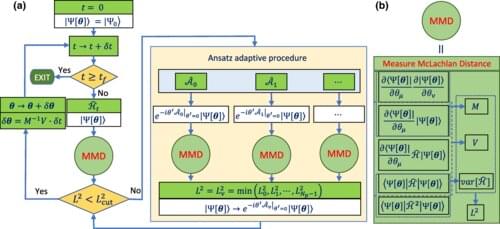Page 5302
Nov 16, 2021
SECRET Artificial Intelligence Project — Google’s Plan for AI Supremacy
Posted by Dan Breeden in categories: military, robotics/AI

Google is secretly working on some of the most advanced and crazy-sounding Artificial Intelligence Systems in the world. Some of them they’ve announced and released to the public, while others are being worked on behind closed curtains.
What these secret AI Projects are, what evil, bad or good things they’ll accomplish and how Googles motto of “Don’t be evil” doesn’t apply anymore, all in this one video. One thing is for sure, this might be the dawn of super intelligent AI robots owned by a single company in the hopes of reaching AI Supremacy.
–
If you enjoyed this video, please consider rating this video and subscribing to our channel for more frequent uploads. Thank you! smile
–
TIMESTAMPS:
00:00 Don’t be evil.
01:32 Google and Deepmind.
03:26 Google’s Connections with the Military.
04:39 What is Googles plan?
07:21 Last Words.
–
#robots #ai #google
Nov 16, 2021
SpaceX launch calendar 2022: Why the year is set to be Elon Musk’s biggest
Posted by Atanas Atanasov in categories: Elon Musk, space travel

SpaceX plans to launch a staggering number of rockets next year, helping to reach CEO Elon Musk’s goal of completing 48 launches in one year.
Nov 16, 2021
New algorithms advance the computing power of early-stage quantum computers
Posted by Shubham Ghosh Roy in categories: chemistry, computing, information science, quantum physics
A group of scientists at the U.S. Department of Energy’s Ames Laboratory has developed computational quantum algorithms that are capable of efficient and highly accurate simulations of static and dynamic properties of quantum systems. The algorithms are valuable tools to gain greater insight into the physics and chemistry of complex materials, and they are specifically designed to work on existing and near-future quantum computers.
Scientist Yong-Xin Yao and his research partners at Ames Lab use the power of advanced computers to speed discovery in condensed matter physics, modeling incredibly complex quantum mechanics and how they change over ultra-fast timescales. Current high performance computers can model the properties of very simple, small quantum systems, but larger or more complex systems rapidly expand the number of calculations a computer must perform to arrive at an accurate model, slowing the pace not only of computation, but also discovery.
“This is a real challenge given the current early-stage of existing quantum computing capabilities,” said Yao, “but it is also a very promising opportunity, since these calculations overwhelm classical computer systems, or take far too long to provide timely answers.”
Nov 16, 2021
Why Did China Keep Its Exascale Supercomputers Quiet?
Posted by Kelvin Dafiaghor in category: supercomputing
There are no greater bragging rights in supercomputing than those that come with top ten listing on the bi-annual list of the world’s most powerful systems—the Top 500. And there are no countries more inclined to throw themselves (and billions) into that competition this decade than the U.S. and China.
Today, the latest results were announced (much more on those here) but notably absent, aside from the expected first exascale machine in the U.S., “Frontier” at Oak Ridge National Laboratory in the U.S., are China’s results, which if published, would have shown two separate exascale-class machines.
This would have been a major mainstream news story had China decided to publicize its results–and on several fronts.
Nov 16, 2021
5 loopholes COP26 leaves that allow the fossil fuel industry to keep polluting
Posted by Poopeh Morakkabati in category: energy
Nov 16, 2021
IBM claims it has made a major breakthrough in constructing a quantum computer
Posted by Genevieve Klien in categories: computing, particle physics, quantum physics
IBM says it has built a quantum processor that it says cannot be simulated by a classical computer.
If true, the processor would represent a major breakthrough in quantum computing, which its proponents say could lead to radical changes in how we are able to deal with information.
The company says that the quantum processor is so capable that to simulate its capabilities with a traditional computer, one would require more bits than there are atoms in every person in existence.
Nov 16, 2021
Longevity as an investment opportunity | Videoclip with Dr. Eric Verdin (S/T in Spanish)
Posted by Andrés Grases in category: life extension

Very well said and in just one minute by Dr. Eric Verdin, CEO & President of the Buck Institute for Research on Aging.
Videoclip of the intervention of Dr. Eric Verdin, CEO & President of the Buck Institute for Research on Aging, referring to Longevity as an investment opportunity.
Nov 16, 2021
Can lucid dreaming help us understand consciousness?
Posted by Nicholi Avery in category: neuroscience
𝘾𝙖𝙣 𝙡𝙪𝙘𝙞𝙙 𝙙𝙧𝙚𝙖𝙢𝙞𝙣𝙜 𝙝𝙚𝙡𝙥 𝙪𝙨 𝙪𝙣𝙙𝙚𝙧𝙨𝙩𝙖𝙣𝙙 𝙘𝙤𝙣𝙨𝙘𝙞𝙤𝙪𝙨𝙣𝙚𝙨𝙨?
The ability to control our dreams is a skill that more of us are seeking to acquire for sheer pleasure. But if taken seriously, scientists believe it could unlock new secrets of the mind.
Nov 16, 2021
New Measures For The Digital Economy
Posted by Gemechu Taye in categories: economics, futurism
By analyzing data from the global online intelligence platform BuiltWith, my colleagues and I have been exploring new ways to measure a nation’s actual digital footprint – from the bottom-up. We have developed two new experimental measures of national digital infrastructure – one focused on domestic digital infrastructure (DDI) and another that looks at a nation’s online export ambitions (DXI).
We plan to develop these further and explore how they may be used to feature in a future index of Digital Economic Investment next year.
This first measure: Digital Domestic Infrastructure (DDI), has a domestic focus and simply looks at the number of websites in each country using the top-level country domain as a simple filter for geography. We digital infrastructure consists of much more than websites and online services but that is a useful guide at a national scale into a nations investments and assets in the digital economy. We’ve also filtered for domains that are hosted by or invest in paid technologies (a data feature BuiltWith offers), so as to distinguish active websites from those that are idle or redirected – typically held by domain squatters. This also removes counts of hobby or personal websites as, while there’s an amazing array of free, open source technologies to be used in building digital services online, most commercial services now have at least one form of paid technology in their mix.















